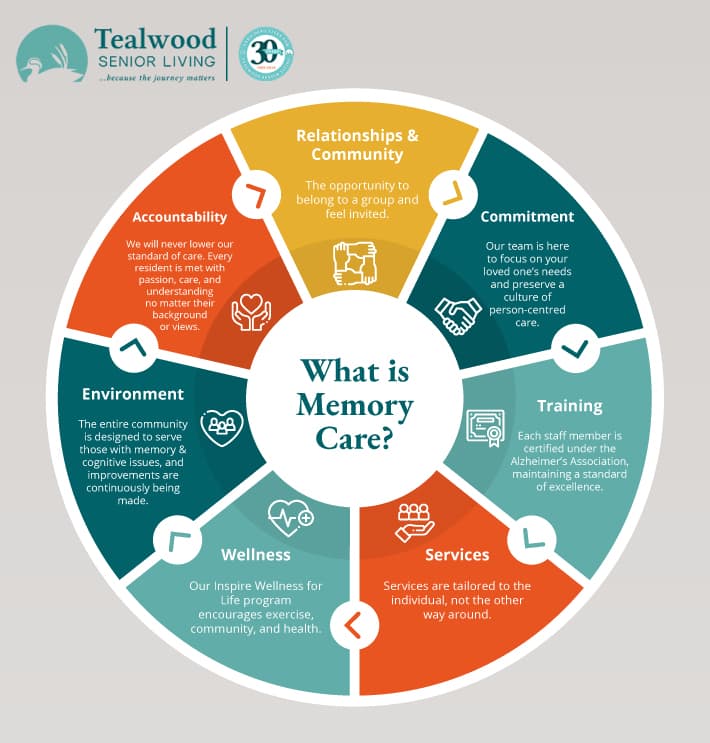Advanced Memory Assistance Providers Available with Alzheimers Care Charlotte
Advanced Memory Assistance Providers Available with Alzheimers Care Charlotte
Blog Article
Producing a Safe and Helpful Environment for Alzheimer's Care
The development of a risk-free and supportive setting for people with Alzheimer's is vital in boosting their high quality of life. This involves not just physical adaptations within the home, such as decreasing threats and including familiar elements, yet likewise the implementation of organized routines and purposeful activities that accommodate their cognitive requirements. Comprehending the psychological and emotional dimensions of care can substantially influence their feeling of protection and connection. Exploring these complex approaches can reveal critical understandings into effective caregiving techniques that might transform the everyday experiences of both caretakers and clients.
Understanding Alzheimer's Requirements
Frequently, individuals with Alzheimer's condition show a range of needs that call for customized approaches to care. As the problem proceeds, cognitive decline shows up in different methods, influencing memory, reasoning, and even the capability to carry out day-to-day activities. Caretakers need to acknowledge these progressing requirements to supply ideal assistance and guarantee a better of life for those influenced.
One essential facet of recognizing Alzheimer's requirements is recognizing the importance of regular and knowledge. People typically find convenience in well established patterns, which can reduce anxiety and complication. Caretakers need to make every effort to create structured day-to-day timetables that integrate significant tasks straightened with the person's abilities and passions.
In addition, effective communication is extremely important. Individuals with Alzheimer's may have a hard time to share themselves or comprehend complicated language. Caretakers need to utilize simple, clear language, use non-verbal signs, and technique active listening to cultivate understanding and connection.
Caretakers need to urge involvement in neighborhood tasks or family events, advertising a sense of belonging and purpose. Understanding these varied needs is important for producing an encouraging treatment atmosphere.
Designing a Safe Home
Creating a safe home for individuals with Alzheimer's disease is important to promoting and decreasing dangers independence. Ensure that pathways are clear and well-lit, as proper lighting minimizes disorientation and boosts wheelchair.
Incorporating adaptive functions is additionally critical. Set up grab bars in restrooms and near staircases, and take into consideration making use of non-slip mats in wet locations. In addition, utilizing different shades for wall surfaces and floorings can assist in identifying rooms, helping to reduce complication.
Knowledge is very important for individuals with Alzheimer's. Individualizing the atmosphere with acquainted objects and photographs can enhance a feeling of belonging and security - Alzheimers Care Charlotte. It is additionally useful to have a designated area for everyday activities, such as reading or crafting, which can give framework to their day
Finally, executing a secure exterior area enables for secure expedition while getting in touch with nature. By attentively designing the home environment, caregivers can considerably enhance the top quality of life for individuals dealing with Alzheimer's condition.
Enhancing Communication Abilities

Non-verbal communication, consisting of face expressions, gestures, and touch, plays a crucial duty in communicating empathy and understanding. Preserving eye contact and a calm temperament can boost the comfort level important site of the individual, promoting a feeling of safety and security.
Moreover, it is very important to exercise active listening. This includes being totally present, revealing persistence, and enabling the individual to reveal themselves without interruption. Rep might be essential; caretakers must be prepared to review inquiries or subjects, as people with Alzheimer's may fight with memory recall.
In addition, using visual aids or hints, such as photos or familiar items, can facilitate acknowledgment and involvement. Ultimately, boosting interaction skills has to do with developing trust and creating a setting where people really feel heard, valued, and understood, consequently enriching their lifestyle.
Urging Social Communication
Cultivating purposeful social interactions can considerably enhance the wellness of people with Alzheimer's condition. Involving with others not just assists combat sensations of seclusion however additionally stimulates cognitive function and psychological health. Structured social tasks, such as group crafts, games and arts, or songs therapy, create chances for homeowners to connect with peers and caregivers, which can bring about improved state of mind and reduced anxiety.
Developing an inviting atmosphere that encourages socialization is vital. This can be attained by setting up public areas that facilitate interaction, such as relaxing seating areas or task spaces. Furthermore, integrating culturally relevant and familiar activities can motivate and stimulate memories involvement, enabling people with Alzheimer's to really feel even more linked to their previous experiences.
Moreover, caregivers should be educated to identify and promote social involvement amongst citizens. Basic gestures, such as starting conversation or assisting in tiny seminar, can help individuals really feel valued and consisted of. Consistently set up get-togethers must correspond yet versatile, accommodating differing degrees of capacity and rate of interest. By prioritizing social interaction, we can dramatically improve the lives of those dealing with Alzheimer's, fostering a sense of area and belonging.
Sustaining Caregiver Health

To sustain caretakers, organizations ought to supply regular training and academic sources to boost their understanding of Alzheimer's disease and caregiving methods. Giving access to reprieve treatment services permits caregivers to take needed breaks, reducing tension and exhaustion - Alzheimers Care Charlotte. Additionally, fostering a community with support teams can help with psychological sharing and the exchange of sensible advice among caregivers, producing a network of shared assistance
Psychological health and wellness sources, such as therapy solutions, can likewise be vital in dealing with the psychological toll caregiving can take. By focusing on caretaker health, we produce a more sustainable caregiving atmosphere that not just benefits the caregivers themselves but also boosts the overall high quality of care received by individuals with Alzheimer's. Inevitably, sustaining caretakers is a vital element in fostering a compassionate and effective treatment setting.
Final Thought
To conclude, the creation of a secure and encouraging setting for people with Alzheimer's is crucial to boosting their high quality of life. By prioritizing safety via thoughtful design, cultivating psychological well-being with acquainted aspects, and promoting engagement via structured regimens, caregivers can significantly influence the general experience of those affected top article by this problem. Additionally, supporting caretaker wellness is essential, as it inevitably adds to a more reliable and caring care setting.
Repeating might be required; caretakers anchor should be prepared to take another look at questions or subjects, as people with Alzheimer's may battle with memory recall.

Report this page